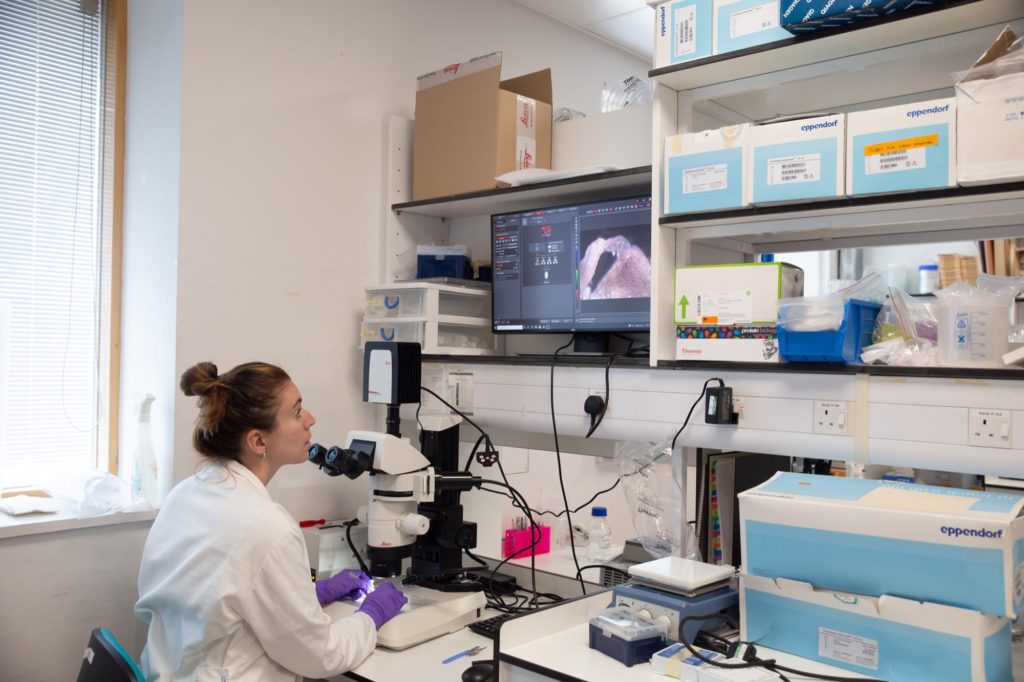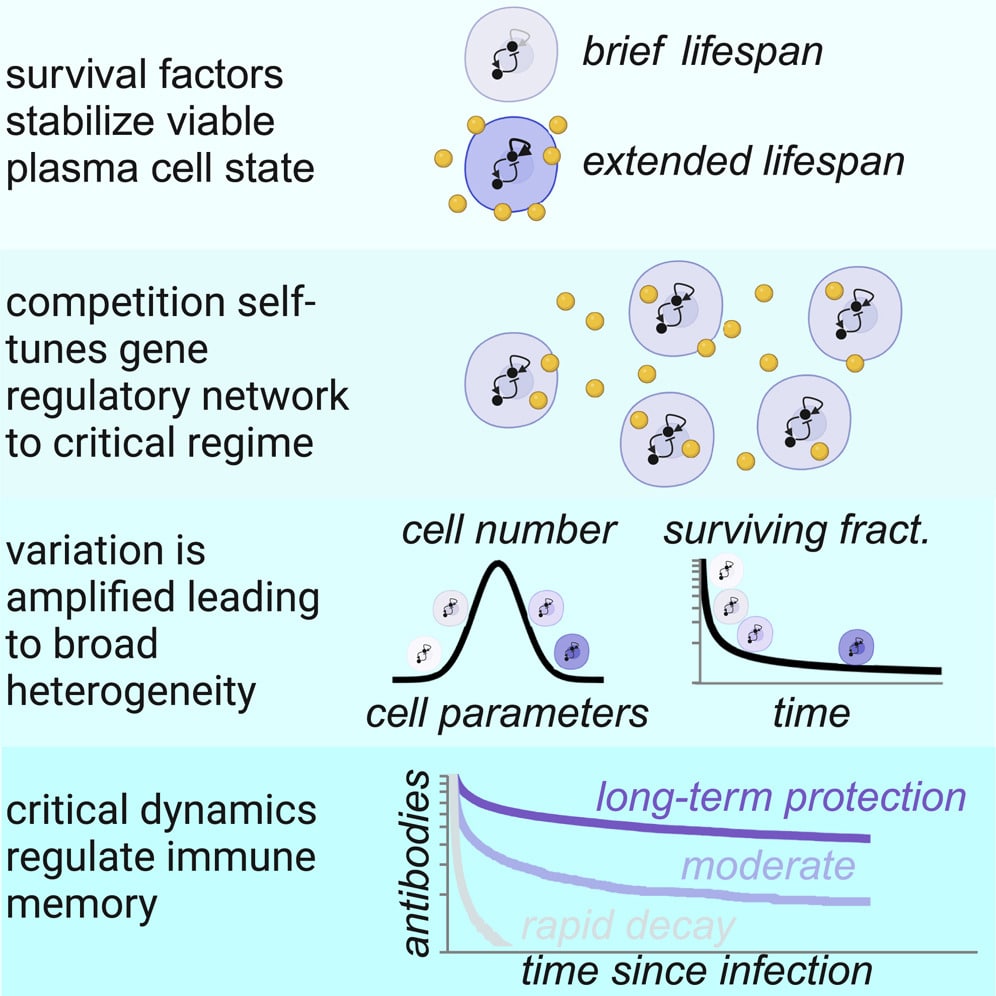Control of cell shape in the developing human lung epithelium
May 23, 2023
Read more
Plasma cells play a critical role in adaptive immunity. Their function in storing immune memory relies on their remarkable longevity with broad heterogeneity of lifespan. Using a minimal theoretical framework, Omer Karin from the Simons lab and now a group leader at Imperial College argues that heterogeneity of plasma cell lifespan arises through the fine-tuning of gene regulatory networks to a critical regime driven by competition over survival factors in the niche.

Plasma cells that emerge after infection or vaccination exhibit heterogeneous lifespans; most survive for days to months, whereas others persist for decades, providing antigen-specific long-term protection. We devel- oped a mathematical framework to explore the dynamics of plasma cell removal and its regulation by survival factors. Analyses of antibody persistence following hepatitis A and B and HPV vaccination revealed specific patterns of longevity and heterogeneity within and between responses, implying that this process is fine- tuned near a critical ‘‘flat’’ state between two dynamic regimes. This critical state reflects the tuning of rates of the underlying regulatory network and is highly sensitive to variation in parameters, which amplifies life- span differences between cells. We propose that fine-tuning is the generic outcome of competition over shared survival signals, with a competition-based mechanism providing a unifying explanation for a wide range of experimental observations, including the dynamics of plasma cell accumulation and the effects of survival factor deletion. Our theory is testable, and we provide specific predictions.